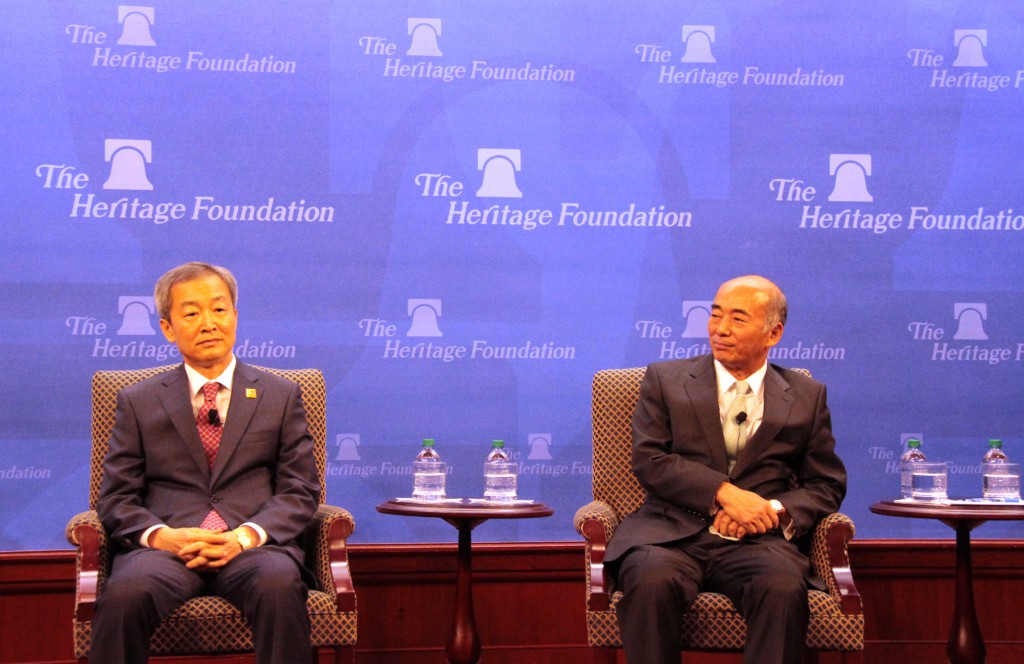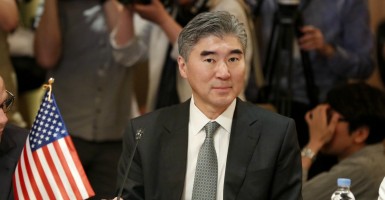Through its continuous work to build, deploy and sell nuclear weapons and its general belligerence toward the rest of the region, North Korea is putting pressure on nearby democracies.
Those democracies should put the pressure right back on the hermit kingdom by opposing its missile development and sales and exposing its appalling human rights record.
That was the top takeaway from an event Wednesday at The Heritage Foundation that featured the ambassadors to the U.S. of both South Korea and Japan as well as a State Department official and others.
“Pressure is a very critical part of our approach to dealing with North Korea,” said Ambassador Sung Kim, deputy assistant secretary for Japan and Korea and special representative for North Korea Policy at the U.S. Department of State. South Korea, Kim said, is “always looking for opportunities to apply pressure upon North Korea.”
The diplomats outlined an array of steps that could be taken, including engagement with North Korean citizens, containment of its weapons exports, additional international sanctions on Pyongyang and “awakening the international conscious,” Ambassador Ho-Young Ahn of Korea said.
Once the world becomes fully aware of the human rights violations in North Korea, then leaders can move toward concrete actions in concert with not just regional partners but countries from around the world.

South Korean Ambassador to the United States Ho-Young Ahn (left) and Japanese Ambassador to the United States Kenichiro Sasae (right) attend a seminar at the Heritage Foundation in Washington on July 8, 2015. (Yonhap News/YNA/Newscom).
“Raise the awareness of the world that we need to more seriously be looking at this issue,” said H.E. Ambassador Kenichiro Sasae, ambassador of Japan to the U.S.
Ahn also said it’s necessary to look at the current situation with North Korea in historical context to prevent becoming discouraged. While it has developed nuclear weapons and threatened on numerous occasions to use them against South Korea, Japan and even the United States, so far, it has fired nothing but test rockets into the Sea of Japan.
“We should be putting into perspective what we have been doing before we move ahead,” Ahn said. “If we try to put all of these issues into perspective and then think about what has been going on in North Korea the last five years, there is less reason to be frustrated.”
Even so, Kim said he is optimistic about the U.S. and South Korea combating any challenges that may arise concerning North Korea, primarily because the alliance between the U.S. and South Korea is particularly stable and prepared.
“It’s robust in every aspect,” Kim said. “I’m quite confident that we have the capability to deal with any actions at stake.”































